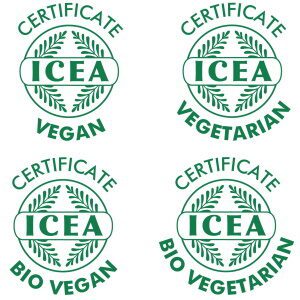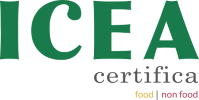The Vegetarian and Vegan Products standard certifies food products and gastronomic preparations of catering obtained without the use of ingredients of animal origin, helping the consumer to easily identify them on the market.
INFORMATIONS
 The ICEA standard for the certification of Vegetarian and Vegan products was developed in collaboration with LAV objection against vivisection which has always promoted an information campaign in favor of 100% vegetable consumption.
The ICEA standard for the certification of Vegetarian and Vegan products was developed in collaboration with LAV objection against vivisection which has always promoted an information campaign in favor of 100% vegetable consumption.
Vegan products doesn’t contain any derivatives of animal origin, while in the case of vegetarian products the ingredients based on milk, eggs and honey are allowed but must be organic or, alternatively, come from farms that respect the welfare of animals and their feeding with GMO-free feed.
It is not always known that bread can contain lard, the rennet used for the production of cheese is normally obtained from veal abomasum and that products of animal origin such as casein, albumin and animal jellies are used to produce wine.
ICEA VEGETARIAN AND VEGAN certified products guarantee:
- Compliance with product and process requirements required by the standard;
- Truthful and verified labels that can reassure the consumer who prefers a vegetarian or vegan diet;
- Absence of ingredients and / or animal derivatives for products where their indication on the label is not required (such as for processing aids and manufacturing aids).

